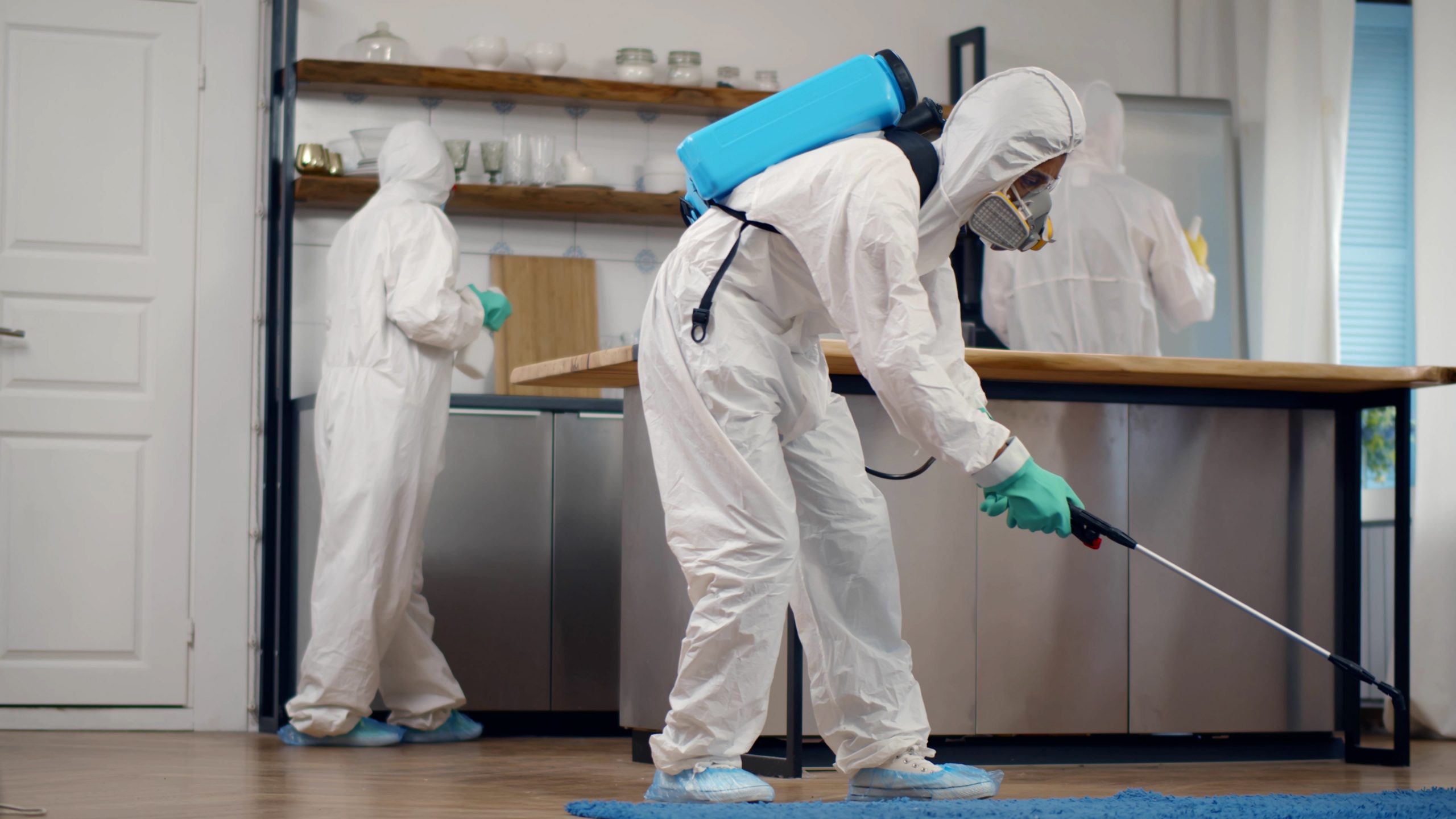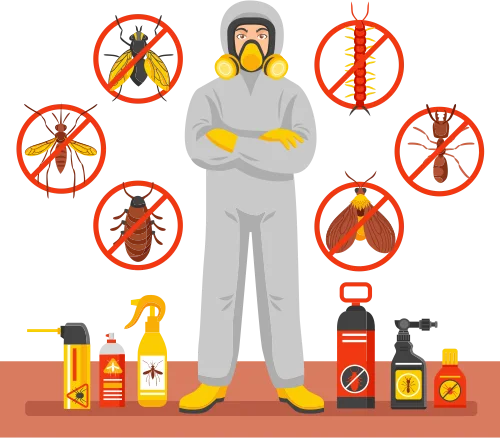Safe and Reliable Insect Control for Lasting Protection
Reliable bug administration needs a complex strategy that balances ecological integrity with the requirement for reliable parasite suppression. The subtleties of these techniques may not be quickly clear, prompting a better exam of the methods that can lead to lasting parasite control end results.
Recognizing Bug Control Methods
Pest control incorporates a selection of techniques focused on managing and eradicating undesirable pests and rats that can intimidate both wellness and residential property. Recognizing these techniques is vital for efficient pest monitoring.
The key classifications of insect control methods consist of mechanical, organic, and chemical strategies. Mechanical approaches include physical obstacles and catches to avoid insect entry and capture unwanted varieties. For example, making use of displays on home windows or utilizing sticky traps can dramatically reduce bug populaces without presenting damaging materials.

Chemical pest control is commonly the most identified approach, utilizing chemicals to eliminate parasites. These chemicals can be effective yet must be utilized with caution to prevent damaging effects on non-target varieties and the setting.
Advantages of Eco-Friendly Solutions
How can eco-friendly options change insect control practices? The adoption of environmentally friendly pest control techniques supplies numerous benefits, dramatically improving the effectiveness and security of pest administration (exterminator coquitlam). These solutions use natural ingredients, reducing the reliance on hazardous chemicals that can pose threats to human wellness and the atmosphere. This change not just shields family members and family pets yet likewise decreases the capacity for dirt and water contamination.

One more advantage is the favorable influence on local biodiversity. Environment-friendly options are developed to target particular pests while preserving valuable insects and wild animals, advertising a balanced ecosystem. This strategy lines up with the growing consumer demand for sustainable techniques, enhancing the online reputation of bug control carriers.
Integrated Bug Management Strategies
The application of green solutions normally causes the fostering of Integrated Parasite Management (IPM) strategies, which even more enhance parasite control efficacy. IPM is an all natural strategy that incorporates numerous techniques to handle insect populations while reducing ecological impact. This technique emphasizes making use of organic, social, mechanical, and chemical controls, making certain a sustainable and balanced technique of parasite monitoring.
One fundamental aspect of IPM is the detailed assessment of insect task and ecological problems. By keeping track of bug populations and recognizing their life cycles, professionals can implement targeted interventions that interrupt the bug's habitat or lifecycle, reducing dependence on chemical pesticides. Additionally, cultural methods such as crop turning and environment adjustment can considerably reduce bug facility and recreation.
One more critical part is using organic control representatives, such as useful insects or bacteria, which can naturally reduce insect populations. When chemical applications are required, IPM prioritizes using low-risk chemicals and uses them selectively, reducing exposure to non-target microorganisms and people.
Integrating IPM strategies not only enhances pest control performance however also advertises a much safer community, straightening with the growing need for sustainable practices in insect administration.
Safe Practices for Property Owners
Recognizing the value of secure practices in pest control can encourage property owners to properly handle parasite issues while Recommended Reading securing their health and the environment. Applying preventative steps and safe approaches is essential in minimizing direct exposure to dangerous chemicals.
Property owners need to first assess their setting for conditions that attract insects, such as standing mess, water, and food waste. Consistently cleansing and sealing entry points can deter pests from attacking the home. Making use of all-natural deterrents, such as necessary oils or diatomaceous earth, can offer efficient alternatives to chemical pesticides.
When chemical treatments are required, house owners must go with items that are especially classified as safe for domestic usage. It is vital to follow application standards thoroughly to prevent overexposure. Utilizing targeted therapies in locations where parasites are determined, rather than covering splashing, can substantially minimize chemical usage.
Finally, keeping open interaction with bug control experts is crucial. House owners must inquire concerning the safety and security of items used and demand green choices whenever feasible. By adopting these risk-free techniques, homeowners can create a healthier living atmosphere while efficiently taking care of pest problems.

Tips for Long-Term Protection
Establishing a bug monitoring technique that highlights lasting defense can use this link significantly boost the performance of the safe methods formerly reviewed. To accomplish this, homeowners ought to apply routine evaluations of their residential property, concentrating on hidden locations such as attics, cellars, and crawl rooms. Early discovery of parasite activity is vital in protecting against infestations from taking hold.
These practices minimize attractants that attract parasites into the home. Securing entry points, such as splits around doors and windows, can successfully obstruct potential insect gain access to.
Landscape design must likewise be taken into consideration; maintaining plants cut and good pest control keeping a range between plants and the home lessens concealing areas for bugs. Using natural deterrents, such as necessary oils or diatomaceous earth, can further inhibit problems without considering rough chemicals.
Lastly, teaming up with a specialist parasite control solution for routine evaluations can offer an additional layer of security. These specialists can supply customized suggestions and progressed treatments, ensuring that your home continues to be shielded against insects in the long-term.
Final Thought
Finally, risk-free and dependable bug control calls for a multifaceted technique that stresses environment-friendly methods and integrated parasite administration. By applying all-natural deterrents, conducting normal examinations, and keeping proper sanitation, homeowner can substantially decrease parasite populaces while securing advantageous pests and the atmosphere. Cooperation with expert pest control solutions boosts the effectiveness of these techniques, guaranteeing tailored options that supply long-term defense and satisfaction against future invasions.
Reliable insect administration calls for a multifaceted method that stabilizes ecological integrity with the need for effective pest reductions. The fostering of environmentally friendly pest control methods offers numerous advantages, significantly boosting the performance and security of insect management.The implementation of environmentally friendly services naturally leads to the adoption of Integrated Bug Monitoring (IPM) strategies, which even more enhance insect control effectiveness. exterminator coquitlam. By checking insect populations and determining their life cycles, experts can implement targeted interventions that interfere with the pest's environment or lifecycle, decreasing reliance on chemical pesticides.In conclusion, reputable and secure insect control needs a diverse method that highlights green approaches and incorporated bug administration